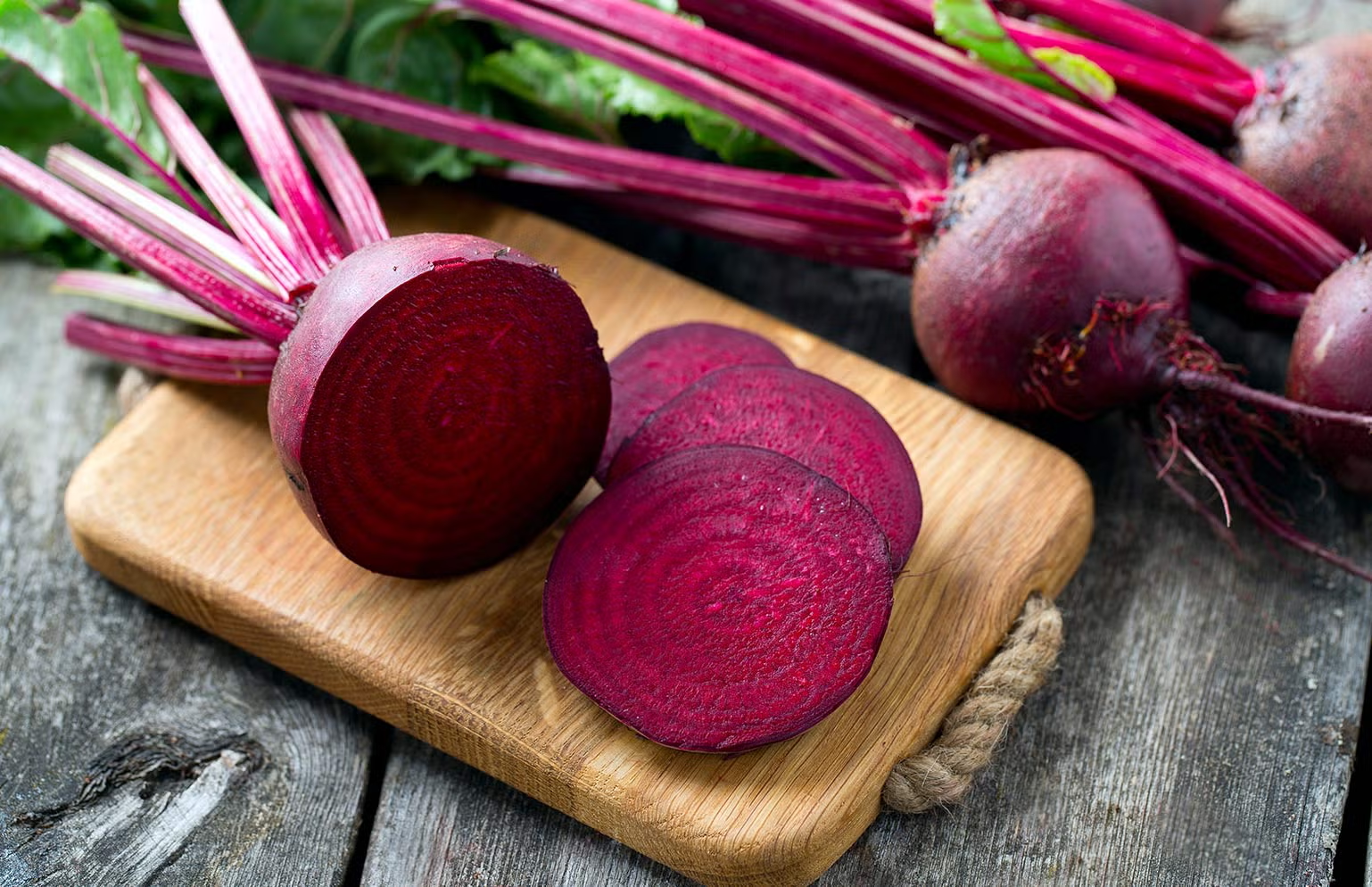
Beautifully red in color, beets are not only a tasty addition to salads and smoothies, they also offer numerous health benefits. Beets (Beta vulgaris) are believed to have originated in the Middle East with the earliest records of beets dating back to the 12th century.1
The edible portion of beets are the root. Beetroot is a nutrient-rich vegetable comprised of several vitamins and minerals such as potassium, vitamin C, calcium and magnesium. What makes beetroot so special and beneficial is its unique composition of phytochemicals (plant-based compounds) such as nitrates and antioxidants.2
WHAT ARE NITRATES?
In order to explain the health benefits of dietary nitrates, it’s important to understand how they work. Nitric oxide is a gas that is produced naturally in the body and plays a role in relaxing blood vessels and increasing blood flow. Why is this important? Increasing blood flow helps with the transport of oxygen and nutrients to muscles and tissues so they can function properly.
There are some foods that can boost your body’s nitric oxide production. One way is through foods that are rich in a compound called nitrates.3 Beetroot has one of the highest concentration of dietary nitrates, along with green leafy vegetables such as spinach, lettuce and radishes.
BEETS AND ATHLETIC PERFORMANCE
During intense exercise, oxygen levels in the muscles decline, which can lead to muscle fatigue. Because nitrates in beetroot help transport oxygen and nutrients to muscles, it makes sense that fitness enthusiasts consume beetroot for performance benefits. Beetroot has been shown to improve performance in endurance activities, improve strength and combat muscle soreness after exercise.
In a position paper by three major health organizations, it’s stated that nitrate from food sources such as beetroot juice improves exercise tolerance and improves performance in endurance exercise (at least in non-elite athletes).5 The U.S. National Institutes of Health states there are limited clinical trials with conflicting results, but beetroot or beet juice “might improve performance and endurance to some degree in time trials and time-to-exhaustion tests among runners, swimmers, rowers, and cyclists.”6 In recreationally trained athletes and sedentary individuals, there is also scientific evidence that beetroot can improve strength.7
How much beetroot juice should you consume for performance benefits? Studies indicate 500mL daily (about 2 cups) taken 2.5 to 3 hours before exercise, anywhere from 1 to 15 days.6
Sore muscles keeping you from getting back to your workout routine? Beets can help. Studies show that beetroot consumption for 2 to 3 days after intense exercise helped to reduce muscle soreness.7
BEETS HELP CONTROL BLOOD PRESSURE
Since nitrates relax blood vessels and increase blood flow, beets can also help with lowering blood pressure. Studies have shown that beetroot juice consumption can reduce systolic blood pressure by about 4mgHG and diastolic blood pressure by 1mHg. What exactly does that mean? Blood pressure readings are reported as two numbers, for example 125/85 (125 over 85). In this example, the evidence shows that beetroot could help to lower that number to 121/84 (121 over 84). The most benefits are seen when 500mL of beetroot juice is consumed daily or over a period of 2 weeks.7
BEETS EQUAL A POWERFUL ANTIOXIDANT
Remember those fancy phytochemicals in beetroot? Several of them have powerful antioxidant properties. Why are antioxidants important? Antioxidants help protect against harmful free radicals. Free radicals are unstable atoms that destroy healthy cells and promote the cell-aging process. In one study, the antioxidant capacity of beetroot juice was found to be greater than over 20 different types of other vegetable juices.10
JUST BEET IT
Ready to try beets for yourself? Pick up this superfood fresh at the grocery store and try them raw, mixed in a salad or incorporated into desserts. You could also pick up canned or pickled beets for a long-lasting pantry staple.
7. Natural Medicines. Beet (Beta Bulgaris) [Monograph]. Updated November 11, 2020. https://naturalmedicines.therapeuticresearch.com/







